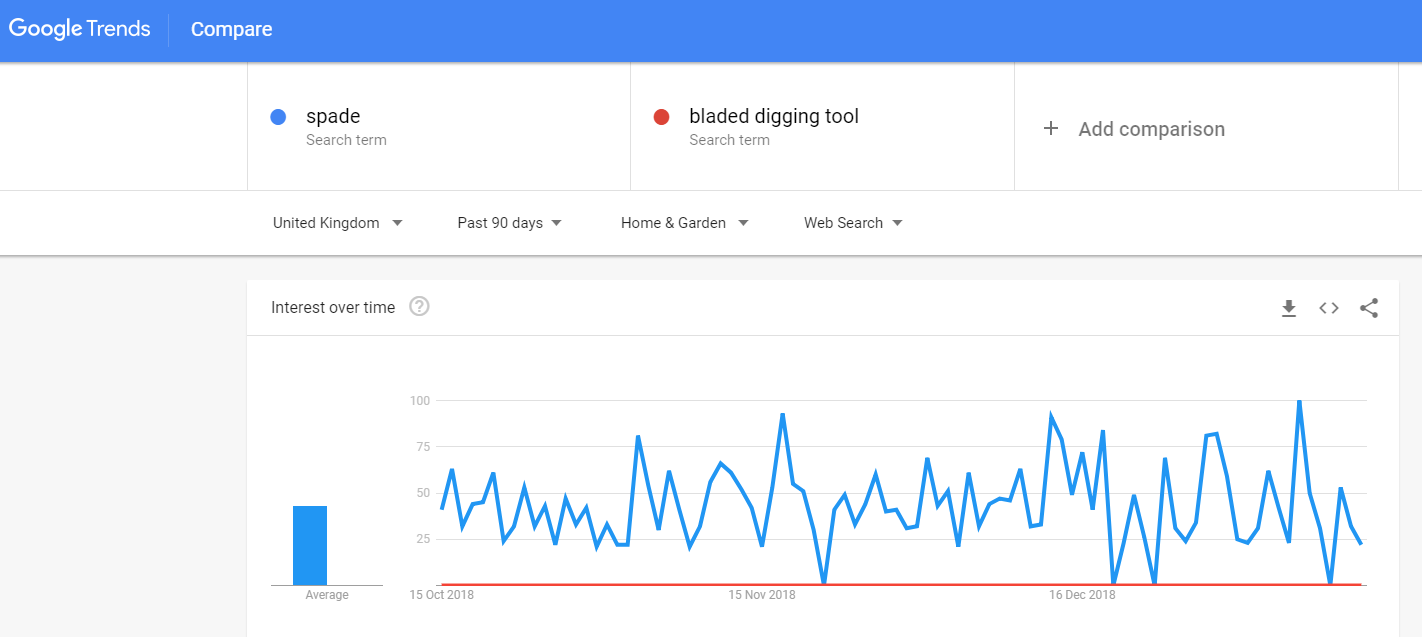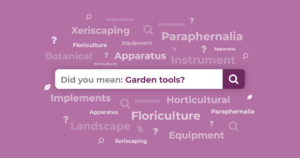When clever words might not be so clever
Why fancy language is bad news for your website and internet ad campaigns
Imagine you’re the owner of company called Whiteleaf. It makes garden tools – or, as you prefer to call them, ‘horticultural implements’ (because it sounds much more professional). You are proud to see these words plastered across the side of your fleet of lorries next to that huge version of your logo.
This approach was all well and good in 1995, a time when there was nothing that couldn’t be improved by some fancy turn of phrase or the word ‘solutions’ at the end of it. Bathrooms? Bathing solutions. Ladders? Access solutions. Brushes? Grooming solutions. And so on.
We’re not in 1995 any more though. Today, there’s a more democratic – and frankly, no-nonsense – force at work and it’s called the internet search algorithm. If you want your website to be found by people, you need to make sure the language mirrors what they’re searching for.
Let’s go back to the imaginary company, Whiteleaf. The spade might be described as a ‘bladed digging tool’ in your marketing literature, but I’m guessing this isn’t what anyone else would use. In fact, I don’t even have to guess – I can know. A quick check on Google Trends gives trend data on search terms so you can compare different options:

Using the right wording is extremely important for search engine optimisation. Google, for example, brings the search results by finding all web pages with those search terms, then rating them according to the number of times it finds similar words and phrases in the URL, in the title and on the page (among other things).
Google Ads usually a similar method. One very important aspect of the Ads process is the Quality Score. Google rates ads for their ‘relevance’ to the search, again partly a process of matching search terms with the wording in the ads and on your website. If your ads and landing page are not considered relevant enough, they might not even be shown (however high your bid!) For a more detailed explanation of how Google Ads works, read our earlier blog post here.
For the imaginary company Whiteleaf, it means calling a spade a spade because that’s the word your target audience uses. Likewise, if your customers want ‘garden tools’, use those exact words on your site and in your ads (and leave the ‘horticultural implements’ for the letterhead and lorries).
Google is clever enough to allow synonyms and AI/machine learning is improving all the time, so you can stretch your language to include a few variations (for example, ‘shovels’). But don’t be tempted to assume too much of it and for the sake of the people reading your ads, it’s always better to be clear.
My top tips for improving your internet language:
- Use Google Trends to find out what people actually search for (make sure you’ve selected the right country in the top right-hand corner before you start).
- Get keywords ideas from a specialist, like Moz or use Keyword Planner after you’ve signed into Google Ads.
- Use simple and clear language. If you sell cat food, don’t just talk about ‘feline nutrition’.
- Decide on the most important words. Then include them in your URL, headings, picture titles, text and ads.

